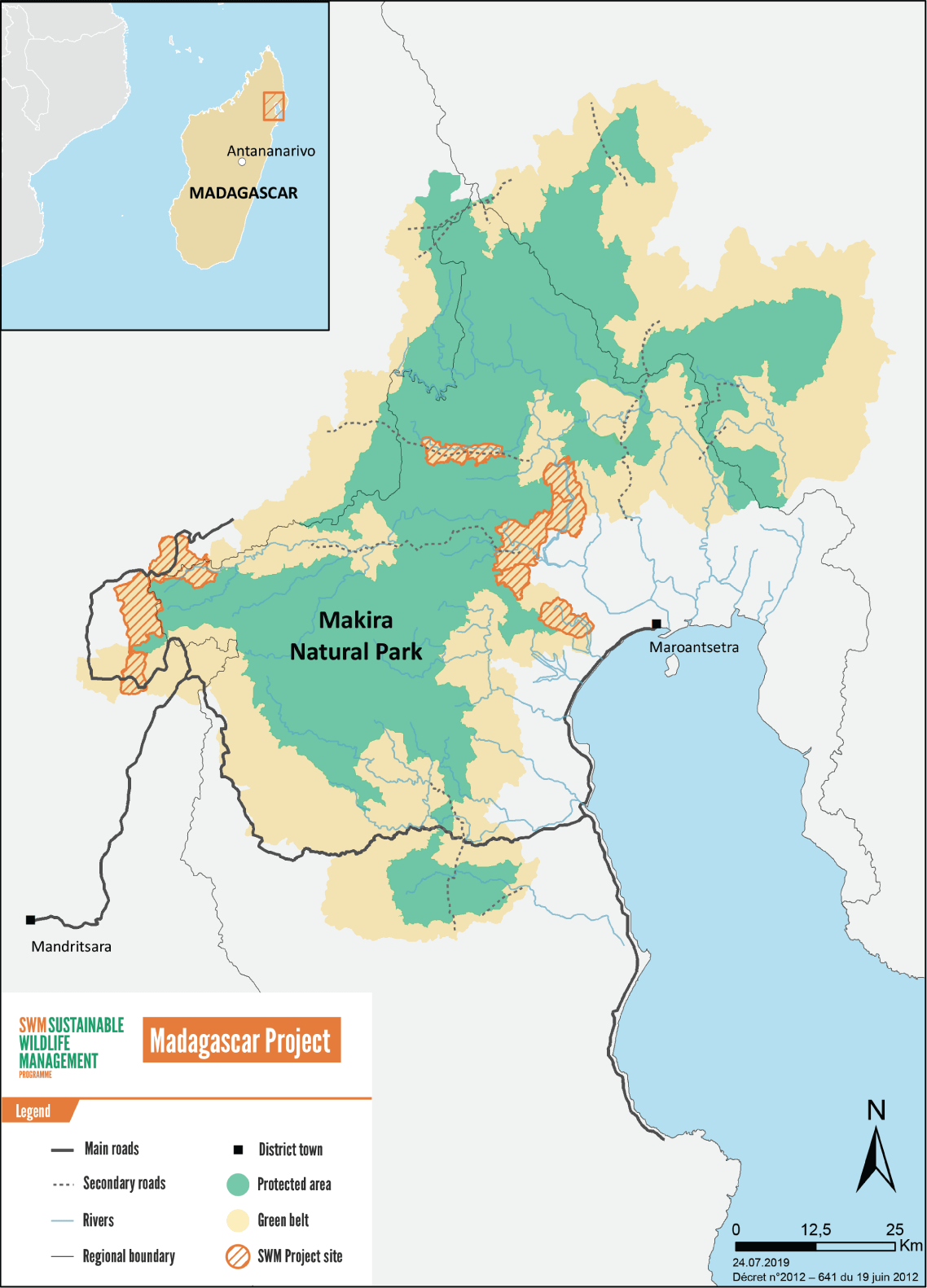The SWM Project in Madagascar
MADAGASCAR
SWM PROJECT
The Makira Natural Park is teeming with an extremely rich diversity of flora and fauna, including 17 species of lemurs. This park is one of the largest intact forest blocks in the country and many local people depend on it for natural resources. Given the remoteness and lack of available domestic meat, subsistence-level hunting is practised, amongst other activities, by local communities. However, hunting threatens the future of wildlife in the region, particularly for species that are threatened or endangered.
The SWM Project in Madagascar is promoting sustainable use of non-protected wildlife species and an increase in the supply of alternative proteins to replace wild meat consumption. The project therefore aims to ensure food security for local communities, while at the same time conserving endemic species. The project is being implemented by the Wildlife Conservation Society, in collaboration with the Government of Madagascar.
DID YOU KNOW?
- Makira Natural Park is home to more than 60 species of mammals including 17 species of endangered lemurs.
- The percentage of households consuming lemur meat at the SWM Programme sites has decreased by 60% since the initiative began.
- SWM Programme interventions and public veterinary services have reduced chicken mortality by 40% and chicken morbidity by 90%.
- We are supporting 90 poultry producers and 60 fish farmers and have trained more than 900 community members to the use of improved farming techniques (watch Nirina’s video).
- More than 430 legal texts on wildlife management and domestic animal production have been identified and analysed (see the country Legal Hub in French) to support the revision of Ordinance 60-126, which established the hunting regime in 1960.

